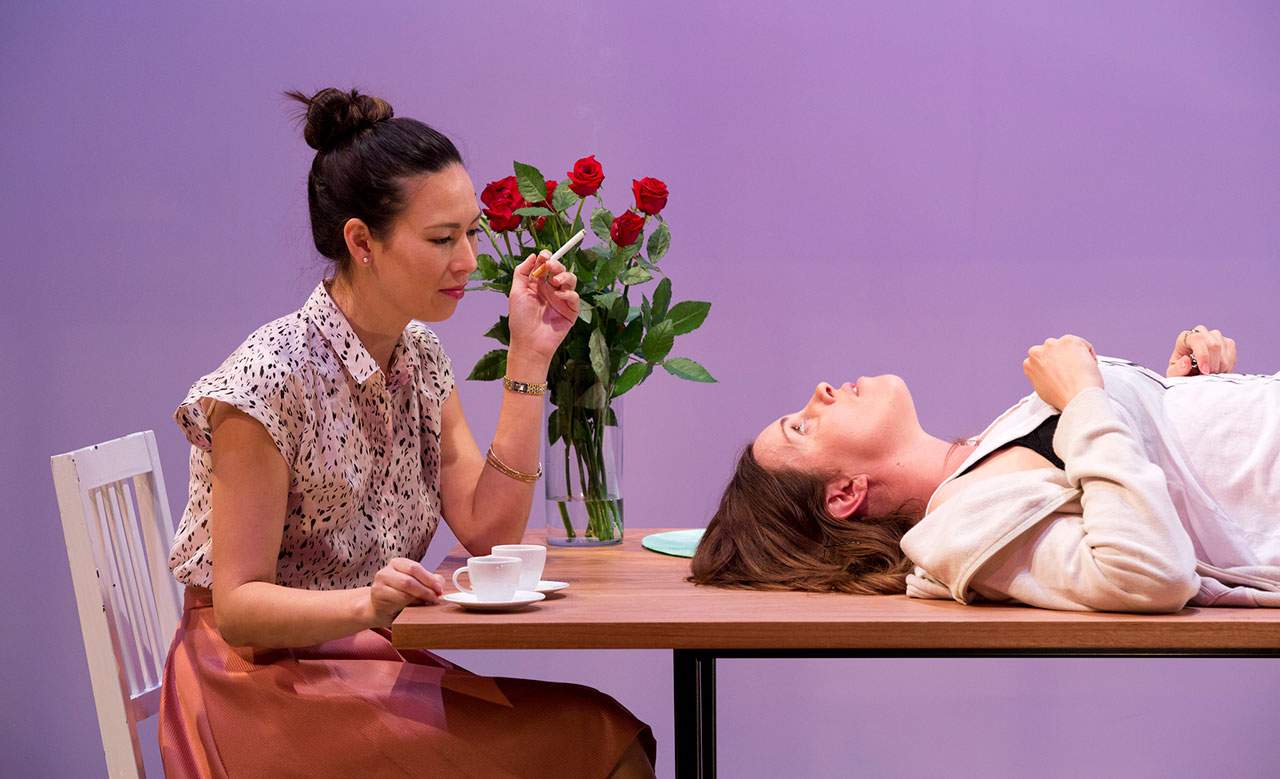Elektra / Orestes - Belvoir
See Elektra without the rose-coloured glasses and revel in a family more dysfunctional than the Kardashians.
Overview
Elektra / Orestes is another offspring of the ‘remade ancients’ that have colonised Australian theatre for the past few years. Director Anne-Louise Sarks wrenches the 'Elektra' story from the grasp of the ancient Greeks, seasons it with colourful 21st-century language and proffers it to Belvoir and friends.
Her decision to do so is mostly justified, not least because this story revolves around the fucked-up family unit, which, as everyone knows, is the modern recipe for success (Kardashians, Osbornes, et al). That said, the 'Orestes' side of the story, the fighting and satellite characters could do with more development.
Elektra / Orestes launches with cheeky music and an irreverent approach to the Elektra epic (in which mother kills father, so daughter hides brother and plots merciless revenge on mother). Its greatest success is definitely Katherine Tonkin as Elektra. With countless depictions of the tragic, troubled, truth-seeking heroine, it’s lovely to see Tonkin almost literally take a dump on the Elektra-romance we’ve suffered for around 2,400 years.
She’s the worst of our times: a layabout, mopey loser. A thirty-something refusing to move out of her mother’s home but determined to make life hell for everyone in it. Revelling in her tragic excess, she is by turns malicious, lamenting, immature and righteous, and in no way endearing to her audience. Rather than divine justice, she oozes bitchface — as her mother says, “You’re loud, completely useless [and have] done nothing for eight years.”
When it arrives, the violent climax of the story is not fully convincing. The fight sequence feels a bit clunky and exaggerated. (Perhaps planned so, to reveal the savagery of Orestes [Hunter Page-Lochard], inherited from his long-dead father? Or was Page-Lochard simply struggling to pop the blood pack?) It teeters between farce and realism, so that the night we attended half the audience gasped and the rest cracked up.
The production proudly exploits the revolve stage, though it could stand to push into newer territory once this trick has been uncovered. Sarks and co-writer Jada Alberts really nail the core values of Aristotle’s handbook. They transport the conceals and reveals, the reversals and recognition from ancient Greece to our modern laps. Ralph Myers manages to enhance this poetry, even with a sterile set design that resembles a kitchen showroom. He makes you think twice about the high-rise city dream and what might be lurking in your ample storage space.
This Elektra / Orestes makes the ancient tale accessible to a contemporary audience. While it's not perfect, and rests a bit too long on the one trick, it is an engaging show about the destruction that ensues when the ‘natural family order’ is disturbed.







